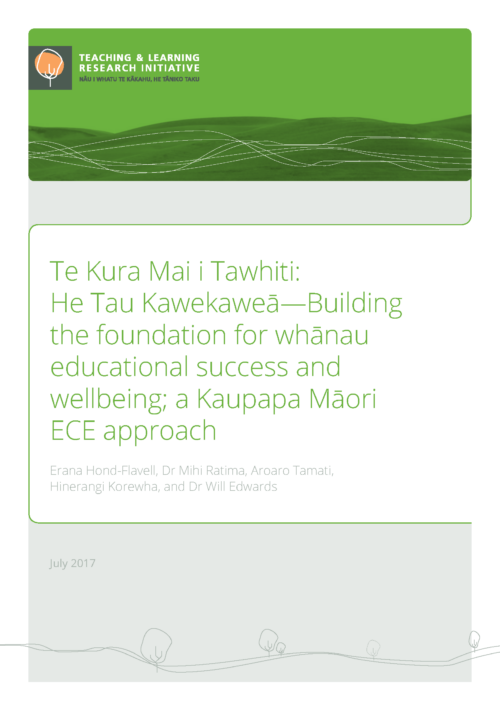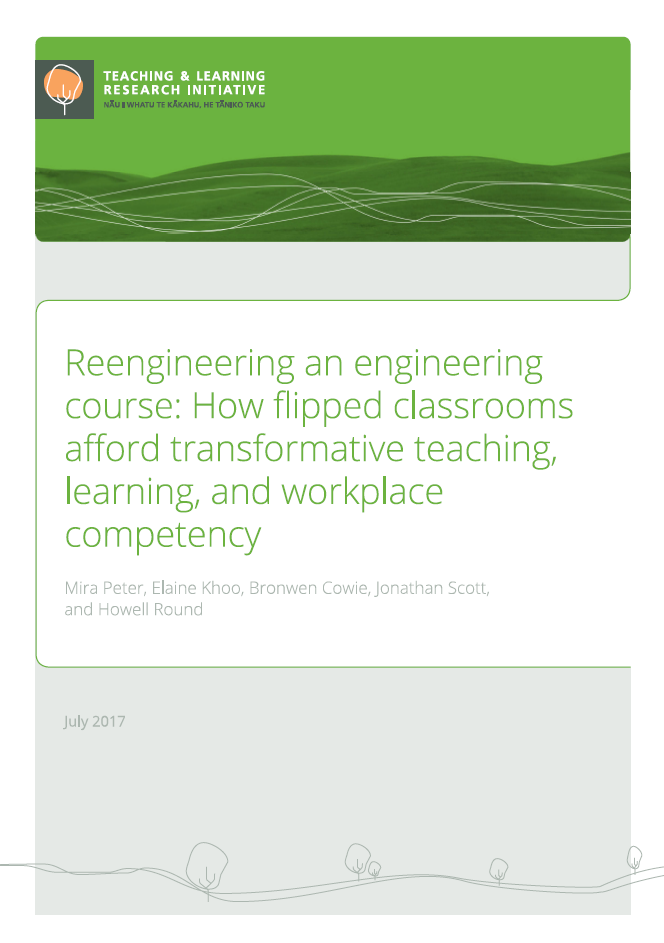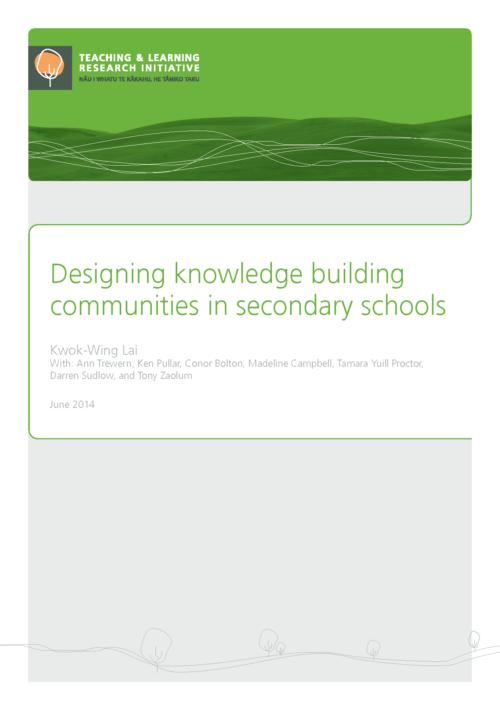
Te Kura Mai i Tawhiti: He Tau Kawekaweā: Building the foundation for whanau educational success and wellbeing; a Kaupapa Māori ECE approach
Introduction Te Kōpae Piripono (TKP), Māori immersion early childhood education (ECE) centre, was recognised by the Ministry of Education in 2005 as a Centre of Innovation (COI), funding a 3-year practitioner research project which looked at whether Whānau Development at Te Kōpae Piripono fosters leadership across all levels of the whānau enhancing children’s learning and development (Tamati, Hond-Flavell & Korewha, 2008). The COI research identified obstacles to individual and collective whānau development and participation in TKP that can have negative consequences for the educational and life outcomes of children and their whānau (families). This study, He Tau Kawekaweā, has built upon understandings derived from that earlier research. The aim of this



